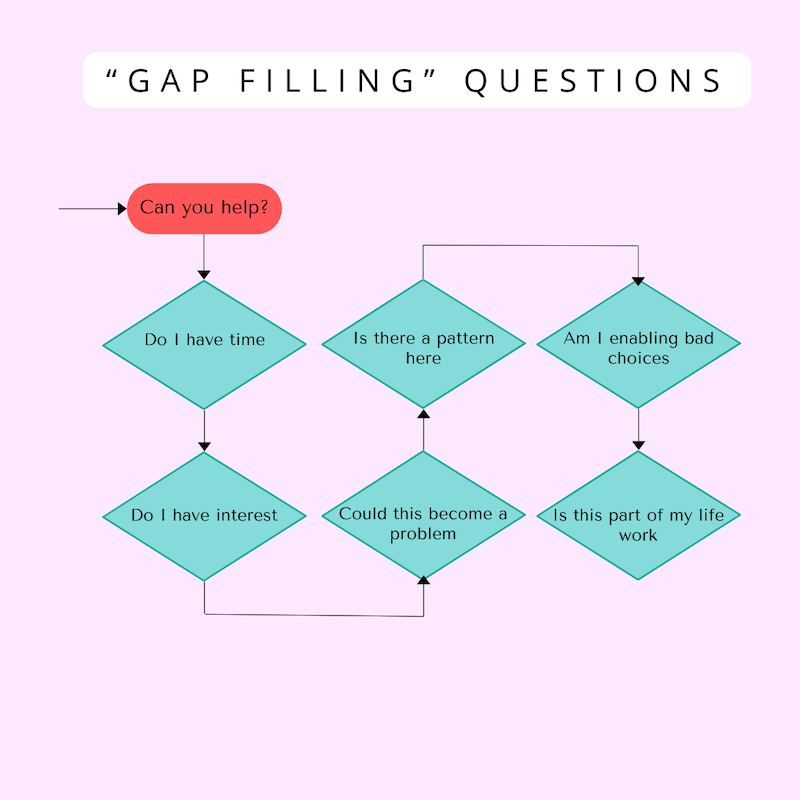Do you feel like you’re not receiving help from any angle, your mental health is spiralling and you have higher levels of anxiety than you’ve ever felt before? Your stress threshold may be maxed out.
When you combine the challenges of being a mum with the chaos of what the world expects, you have the ingredients for a perfect storm.
Understanding your stress threshold
It’s really important to understand your stress threshold. Stress thresholds, like pain thresholds, refer to the maximum amount of stress an individual can handle before experiencing its negative impact on physical and mental health. These thresholds can change over time through factors such as lifestyle, environment and past experiences.
If you have had a lot of physical pain in your life, a dislocated knee or even a bad ankle sprain may not faze you. But it doesn’t mean that you shouldn’t attend to them.
The same is true for your stress threshold. If you have had a lot of stress in your life, whether recently or over a long duration, your stress threshold will be high. This is dangerous. It means you can take far above the amount of stress you “should” be having without noticing it.
Having a high stress threshold is a problem because it can’t be sustained long-term. Maxing your stress threshold does not make you “stronger”. Eventually, at some point or another, you will crash and burn. It may not be a mental burnout, but your health will deteriorate. Recent studies now show that stress, trauma and unprocessed pain can even show up as cancer and autoimmune diseases.
And as frustrating as it might be, taking a deep breath is not going to fix the issue.
The issue of maternal stress
Maternal stress happens in the prenatal period, during pregnancy or in the postnatal period. Not only does it cause complex emotional strain on the mum, it also significantly influences child development, raising concerns among health professionals about its long-term effects.
Research suggests that prenatal maternal stress is a risk factor for neurobehavioural development, including potentially causing both autism and attention deficit hyperactivity disorder. Postnatal depression and postnatal anxiety also have ramifications on maternal behaviour and mental health, and can lead to childhood maltreatment.
Emotional and mental stress should never be something any parent or child has to endure. Thankfully, there are ways to reduce the load and the impact.
Does this sound like you?
There are plenty of things that can mess with your stress threshold, cranking it up to an all-time high. Do any of the following sound like you?
Taking on too much
- constantly baking for friends, school events, fundraisers and more
- meeting up with people even when you have no time or energy
- taking on employment hours that are too much for you to handle right now
- being the “saviour” for friends, family or colleagues
- filling in or covering up for people so they can save face
- can never say “no”
- being everyone’s support person
- never taking the day off or cancelling even if you’re sick
- appearing to be “super mum” with a perfect life
Don’t know what self-care means
- relaxation is not in your vocabulary
- don’t regularly do things that are needed for your health (think eating healthy meals, exercising, getting to sleep early, enjoying a hobby)
- so rushed you often can’t remember what day it is, when you last brushed your teeth or if you’ve missed a special appointment
You are the “nice” girl
- nobody can make you upset, except for your partner and child
- you will never show your true feelings outside the house
- you always smile and brush hurtful comments aside, even from the mother-in-law
- you always say “yes” and never say “no”
- you’re so used to helping everyone else figure out their issues, you don’t know what yours are
- you don’t have any goals or dreams because you’re too busy helping others fulfil theirs
- you have no idea what you like to do anymore
- others control you at home, work and in friend groups, but you feel too ashamed to speak up
- you accept a wage, position or situation that is far below what you deserve and are capable of, but you don’t say anything to avoid conflict
- you feel worried that if you express your needs or opinion, you might come across as selfish or hurt other people’s feelings
- you spend 90 per cent of your time with the toxic people in your life in order to “fix”, “rescue”, “save” or “support” them, and only 10 per cent with healthy people who offer you a mutually beneficial relationship.
When you combine any of the above items with being a full-time mum, you can be sure you’re maxed out. We won’t even mention society expectations of a mum bod, flawless tan and beautiful hair. The relentless pursuit of perfectionism will lead to breakdown.
The precursor to burnout
Burnout, a state of emotional, physical and mental exhaustion caused by prolonged stress, is a significant risk for busy mums. When stress thresholds are constantly exceeded without adequate recovery, the body and mind become depleted, resulting in burnout. The exceedingly heavy mental load cannot be carried indefinitely.
Having consistently high stress levels, trying to raise children, be the emotional support person for everyone and keep up the perfect image for social media brings only one thing: Burnout.
Symptoms of burnout may manifest differently for each individual but often include:
- feelings of overwhelm, detachment and decreased satisfaction in daily activities
- physical symptoms such as fatigue, headaches and digestive issues
- sensory overload, causing noise and light sensitivity
- reduced maternal sensitivity (the quality with which mothers respond to their infants’ cues in a timely and appropriate manner)
Burnout is not a state you want to be. The recovery time is often long and tiresome, and for many mums, it can take years to get back to a state of feeling great again.
How to recalibrate your stress threshold

The is where things are going to get intensely practical. You’ve got some serious self-evaluation and action steps to do in order to recalibrate. So buckle in and hold on.
1. Your needs come first
You may feel this is the most selfish thing you’ve ever heard. The person who taught you that could very likely have been your mum, who was also maxed out. Girls are taught from a young age to put other’s needs above their own. Mums will sacrifice a piece of cake because there’s not enough to go around. Daughters see this and assume this is their role too.
This goes far beyond cake. The thousands of micro-decisions made in a family can set a girl up for a lifetime of putting other people’s needs above her own. This ends up in complete and utter confusion, frustration, resentment, loss of identity, loss of personality and ultimately burnout or mental illness.
As the saying goes, “Put your own oxygen mask on before helping others”. If you don’t take care of your needs first, you’ll be a terrible help to anyone else.
What does it look like practically?
The basics are:
- nutritious food
- proper hydration
- adequate rest
- physical fitness
- mental health support
- healthy relationships
- relaxation
If you don’t make time for these, you’re not taking care of your needs. If you only have time to make proper meals for your husband and kids, clean the house and then drop into bed exhausted, you’re not looking after your needs. If you make time to drive your kids to sports but never make time for your own physical exercise, you’re not looking after your needs.
Supporting your needs means taking care of your whole person, including your mind. Most everyone on the planet has negative and distorted core beliefs, trauma, and struggles with anxiety and depression. Getting support from a qualified clinical psychologist could be the most life-changing thing you ever do for yourself and your family.
You would be amazed how much of a difference just making time for the basics will change your stress threshold.
2. Stop trying to close the gaps
Your work colleague wants you to take on their project because they’re running behind. Your mother-in-law demands you boil and mash vegetables for hours a day as she refuses for her grandchild to eat store-bought baby food. Your teenage child wants you to bail them out financially all the time. Stop, stop, stop trying to close other people’s gaps.
You’re not a gap-filler. When you spend time trying to fill other people’s gaps, you’ll have no time to fill your own. That’s called self-sabotaging and it’s trauma response behaviour that feeds off your low levels of self-worth.
What does it look like practically?

Learn how to identify gaps. When people ask you to take on something, identify the gap instead of automatically saying “yes”. Ask yourself these questions:
- Is this something I have time for and interest in?
- Is this going to be creating a problem for myself in the long-term?
- Is this a pattern I’m seeing?
- Am I enabling bad choices?
- Is this going to be taking me away from my work?
If you can honestly answer the questions without feeling discomfort, go ahead and help the person. If you cannot, you will need to firmly and respectfully decline. (If it’s possible to find middle ground that truly works for you, then there’s that option as well.)
3. Choose your inner circle wisely
This one is crucial to recalibrating your stress threshold. Anxiety disorders, panic disorder, depressive symptoms and emotional distress in general have a lot to do with relationships. Do you spend a lot of time with toxic people? Are your family and friends needy? Do you have family and friends who support and respect you, and spoil you on occasion, or are you the one doing everything for everyone? Do you have people you can trust, who are safe, honest and examples of balance?
What does it look like practically?
- Write down a list of all the people you regularly spend time with, communicate with or give energy to. This will include family, friends, neighbours, work colleagues and others.
- Underline each person on this list who is safe, non-toxic, kind, respectful, non-needy, trustworthy and someone who you want your child to grow up to be like.
- Put down an estimate of how much time you spend with these people weekly.
- For the other people on the list who are not in the “positive” category, put down an estimate of how much time you invest in them.
- Aim for 95 per cent of your time with healthy, safe, mutually beneficial relationships, and if you really have to communicate with toxic people, make it only 5 per cent of your life.
Ideally, you should be making time for healthy friendships at least three times a week. It could be a picnic with your partner, a café catch-up with your friend or just a phone call. Who you have in your inner circle will affect your stress and stress threshold.
Motherhood shouldn’t ruin you
Motherhood is challenging, busy and sometimes all-consuming, but it shouldn’t be ruining you. The psychological distress from unrealistic parenting expectations, over-working and unprocessed personal trauma can lead to mental health problems which will leave negative impacts if not addressed.
Take an honest evaluation of your life and identity where your stress and stress thresholds are sitting. Assess how your self-care is. Gauge whether you are the “gap-filler” in people’s lives. And finally, be intentional about social support by creating a solid, healthy friend group or joining a flourishing mums’ group where you can feel supported and safe. Your sensory system should be overloaded with the beautiful and meaningful things in life instead of chaos.
If you’re in Australia, you can also reach out to your GP for a mental health care plan which entitles you to 10 free psychology visits.
Remember you don’t need to battle alone. It truly does take a village to raise a mum.
Read next
- Why your child shouldn’t be your life’s work
- Raising strong daughters in the 21st century
- 3 things you probably overlooked when it comes to self-care and loving yourself
How helpful was this article?
Click on a star to rate it!
0 / 5. 0
Be the first to rate this post!
Adriana Wales
Related posts
Subscribe
Receive personalised articles from experts and wellness inspiration weekly!

